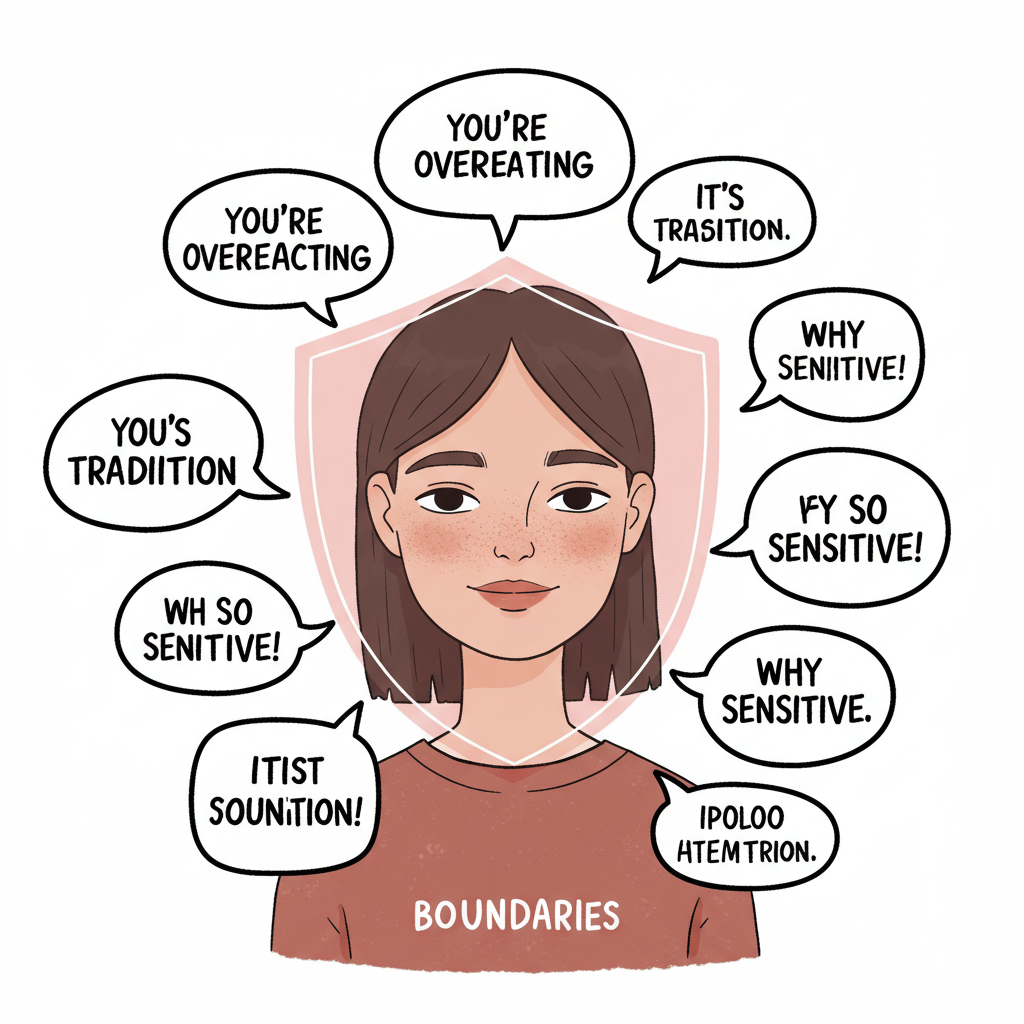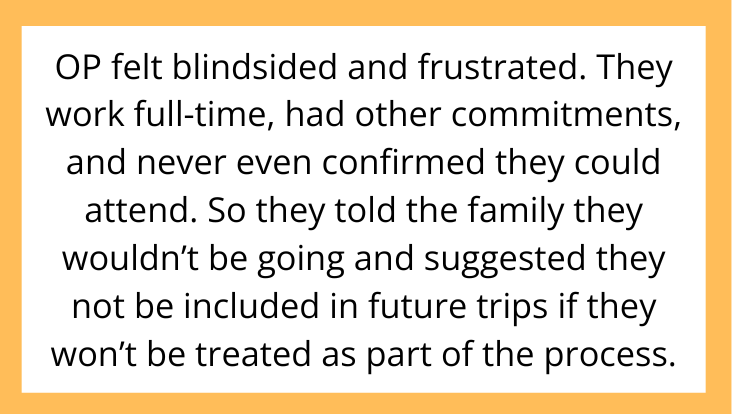AITAH for Wanting to Cancel a Family Vacation Because I Wasn’t Included in the Planning?
Family vacations are supposed to bring people closer—but what if you’re expected to show up and pay up for a trip you had zero say in? A recent AITAH post captured this exact frustration: one person felt excluded from vacation planning, yet was still expected to participate and contribute financially. When they pushed back, chaos ensued.
In today’s blog, we’re diving into the tension between family expectations and personal boundaries. Are you wrong for walking away from plans that never considered your input?
The Scenario: Left Out But Still Expected to Join In

The original poster (OP) shared that their extended family had been planning a beach vacation for months. The problem? They weren’t invited to any of the group chats, planning calls, or discussions. The trip was finalized—dates, destination, house rental—without their knowledge. Then came a message: “We booked everything! It’ll be $900 from you. See you there!”
OP felt blindsided and frustrated. They work full-time, had other commitments, and never even confirmed they could attend. So they told the family they wouldn’t be going and suggested they not be included in future trips if they won’t be treated as part of the process.
The response? Accusations of being dramatic, selfish, and “too sensitive.” Cue the guilt trips and group chat chaos.
Why This Hits Home for So Many People

This kind of situation isn’t rare. Family can sometimes assume availability and compliance—especially from the more flexible or financially stable members. But participation without consent isn’t just inconsiderate—it’s exclusion masked as inclusion.
Here’s why this struck a nerve with so many readers:
-
Planning without input = lack of respect
-
Financial obligations without consent feel unfair
-
Being treated like an afterthought is deeply hurtful
Family or not, expecting someone to just go along with plans they had no say in can cross boundaries.
Are You Obligated to Join Family Trips?

Let’s be clear: you are never obligated to attend a trip that disrespects your time, budget, or autonomy—even if it’s “tradition.”
Consider the following:
-
Were you asked or told? There’s a huge difference between being invited and being expected.
-
Do the plans conflict with your life? If you have work, health, or personal needs, that matters.
-
Are your feelings being heard? If your concerns are dismissed, that’s a red flag.
Family vacations should be collaborative, not compulsory.
How to Set Boundaries Without Burning Bridges

If you’ve been dragged into a similar situation, here’s how you can stand your ground without being cruel:
1. Be Direct, Not Defensive
Explain that you weren’t included in the planning and can’t commit to something you weren’t consulted on.
2. Offer a Middle Ground
If you still want to participate, suggest adjusting the dates or activities, or contributing in another way.
3. Say No With Confidence
If you truly don’t want to go, don’t apologize excessively. Just state your decision clearly and respectfully.
4. Suggest Future Inclusion
Let them know you’re open to future trips—but only if you’re part of the discussion from the start.
Boundaries don’t equal rejection. They signal self-respect.
Why Families React the Way They Do

Often, family members don’t even realize they’ve excluded someone until it’s pointed out. But rather than admit fault, they respond with:
-
Guilt: “We just wanted to surprise you.”
-
Defensiveness: “Why are you making a big deal out of nothing?”
-
Blame: “You always have something to complain about.”
Recognizing these patterns can help you avoid internalizing the guilt and stay grounded in your truth.
What Reddit Had to Say

The r/AITAH community was largely in OP’s corner. Many users shared stories of being left out of family planning only to be handed a hefty bill later. The consensus: if you’re not invited to the table, you’re not obligated to eat the meal.
Some did suggest that if OP still valued the family relationship, they could’ve tried to join part of the trip. But most agreed: showing up out of guilt does no one any favors.
Final Thoughts: Inclusion Isn’t Just About Presence—It’s About Participation

If you’ve ever felt sidelined in family decisions, know this: you’re not alone, and you’re not wrong for setting boundaries. Inclusion means more than just being counted—it means being considered.
By speaking up, you’re not being difficult. You’re asserting that your time, money, and presence deserve respect.



